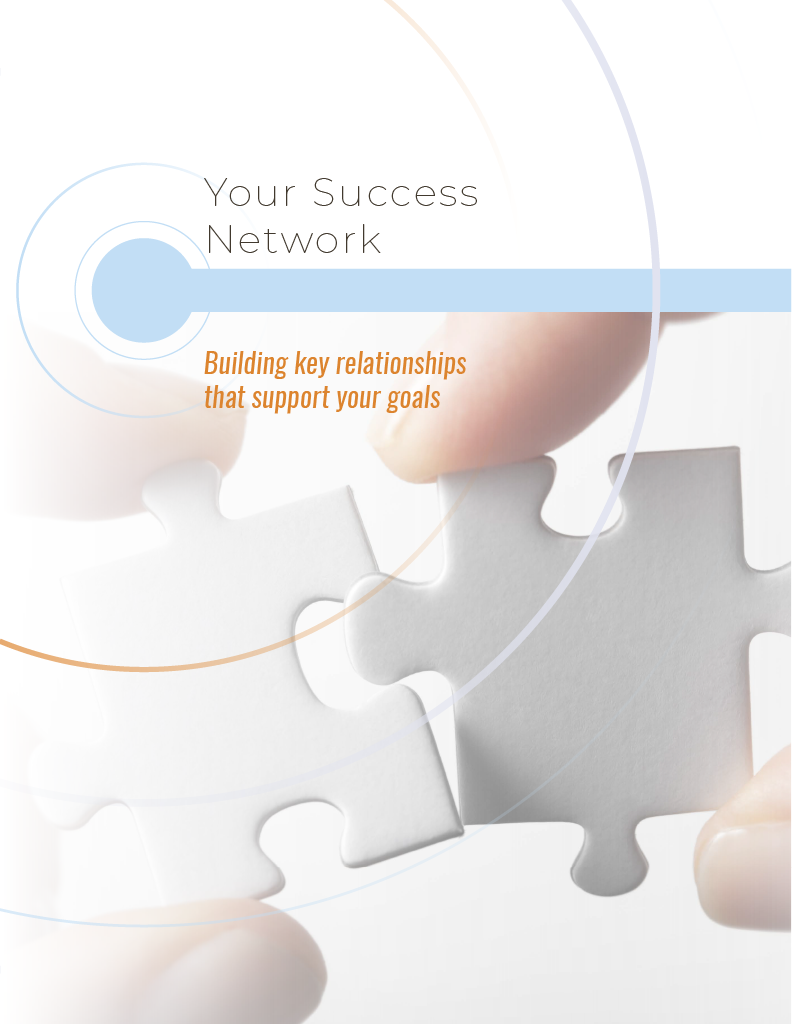Your Success Network
Discovery Resource # ST-34
Resource Topic:
Lifestyle
Planning Tools:
Survival Tool
Career Phase:
Discover
Description:
Building key relationships that support your goals
[easy-social-share buttons="facebook,twitter,google,pinterest,linkedin" counters=0 style="icon"]
[easy-social-share buttons="facebook,twitter,google,pinterest,linkedin" counters=0 style="icon"]
Description:
Learn how to transition from your training mentorship and support network to a professional network by building an enhanced success network – a set of people who take an active interest in your journey and assist you in your personal and professional development as you strive toward your post-residency career and life goals. These mentors, sponsors, peers, and advisors who make up your success network will give you wisdom, inspire you, provide tactical advice, and most importantly, create accountability.
For the past decade, you’ve been surrounded by professors, program directors, faculty, and peers who have helped guide and support you throughout training. Soon you’ll be making many significant work-life decisions that will impact you both personally and professionally as you transition. These key career decisions include choosing a practice opportunity, deciding where to live, buying a home, and many other important career and life choices that will shape your lifestyle, work life balance, and overall wellness.
An enhanced success network—mentors, sponsors, coaches, advisors, and peers—can help you in all aspects of your life. No matter where you are in your life and career journey, creating and sustaining high quality relationships will help you make good decisions, navigate your path, and achieve your goals more quickly than you could without them.
For the past decade, you’ve been surrounded by professors, program directors, faculty, and peers who have helped guide and support you throughout training. Soon you’ll be making many significant work-life decisions that will impact you both personally and professionally as you transition. These key career decisions include choosing a practice opportunity, deciding where to live, buying a home, and many other important career and life choices that will shape your lifestyle, work life balance, and overall wellness.
An enhanced success network—mentors, sponsors, coaches, advisors, and peers—can help you in all aspects of your life. No matter where you are in your life and career journey, creating and sustaining high quality relationships will help you make good decisions, navigate your path, and achieve your goals more quickly than you could without them.
Objectives:
- Discover the wide range of advisors that can help you through major career transitions.
- Understand the importance of mentoring in the context of your success network.
- Chart and map the success network that supported you through your residency.
- Evaluate your network in terms of help you need for your new career and life goals.
- Learn about four key relational models that help shape all relationships.
- Build out and map your future enhanced success network.
- Learn distinctions among mentors, sponsors, and coaches in career management.
- Recognize and avoid “tor”-mentors going forward.
- Reflect on the importance of lifelong learning, change, and the ability to adapt as you consider your success network over the long-term.
Previous Post
« Managing Your Student Debt
« Managing Your Student Debt
Next Post




